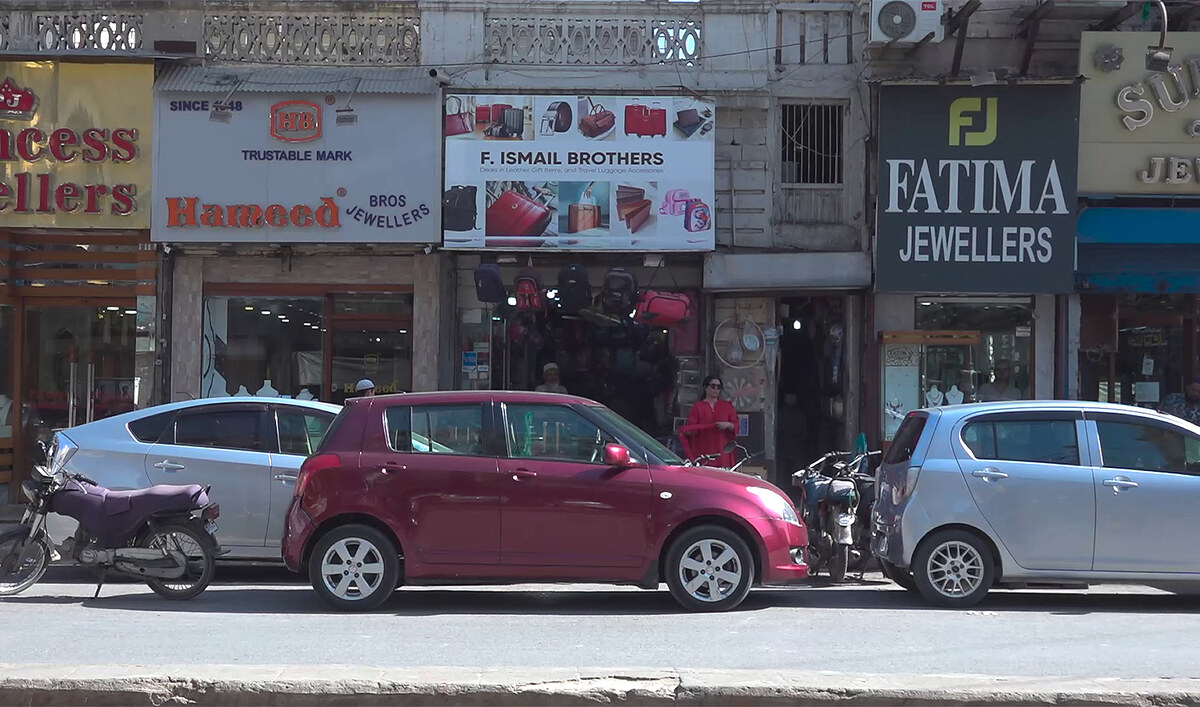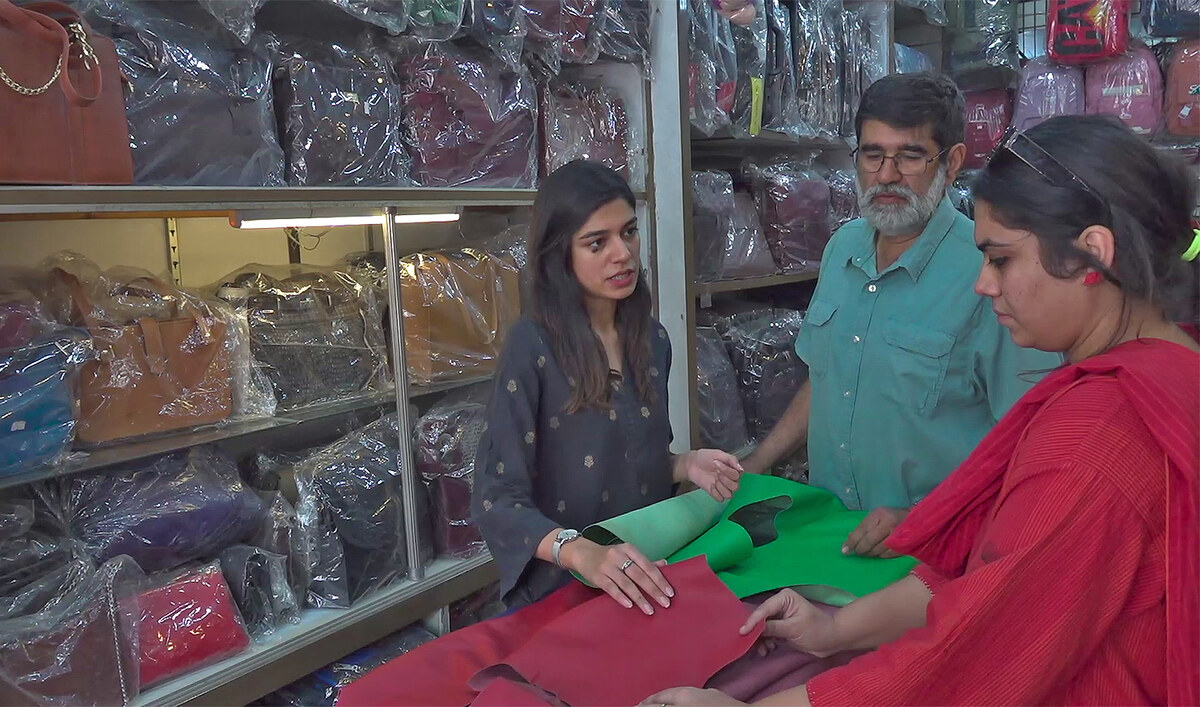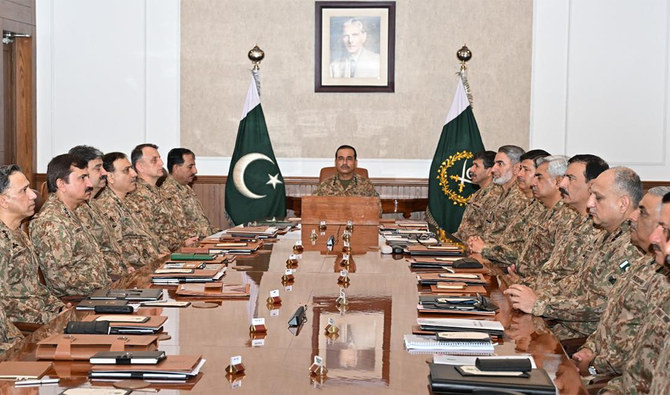ISLAMABAD: Pakistan’s top military brass on Friday raised concerns over “unwarranted” criticism of a newly announced operation against militant violence in the country, saying it would assist the government in addressing all security-related challenges undermining investor confidence.
The military’s media wing, Inter-Services Public Relations (ISPR), announced this in a statement circulated after the 265th Corps Commanders’ Conference held at the General Headquarters in Rawalpindi, presided over by Army Chief General Asim Munir.
The participants reviewed the overall security landscape and focused on Operation Azm-e-Istehkam — or Resolve for Stability — which was announced last month during the meeting of the country’s top security body.
The opposition parties, including former prime minister Imran Khan’s Pakistan Tehreek-e-Insaf (PTI), raised objections to the planned operation, pointing out that it should have first been debated in the national parliament. They also expressed fears it could create further instability in the country.
“The forum undertook a comprehensive review of internal and external security situation of the country and had detailed discussion on various aspects of ‘Azm-e-Istehkam’, which is aimed at harnessing the national counter terrorism efforts in a synchronized manner to dismantle the nexus of terrorism and illegal spectrum in the country for enduring stability and economic prosperity,” the ISPR said.
“Forum noted with concern the unwarranted criticism by some quarters and deliberate misrepresentation of the vision, only for furthering their vested interests,” it added.
The statement said Pakistan’s military leadership was cognizant of the full spectrum of challenges faced by the country, as it pointed out that it would “shoulder its constitutionally mandated responsibilities with support of the resilient people of Pakistan.”
The conference also raised alarm over the “onslaught of politically motivated digital terrorism” against state institution, saying it was to create despondency among the nation and sow the seeds of discord through “fake news and propaganda.”
“Armed Forces along with the nation are fully aware of all such machinations and stand united and committed in defeating the notorious designs of the enemies of Pakistan,” the ISPR statement maintained.
“Forum reiterated to continue full support of ongoing efforts in uplifting the socioeconomic growth and wholeheartedly assisting the government in curbing all illegal activities which hamper investors’ confidence, economic stability and growth.”
The government’s decision to launch the new operation against militants came against the backdrop of a surge in violence in different parts of the country.
It also came shortly after a top Chinese leader visited Pakistan and expressed concern over militant attacks, noting they causing consternation among investors in his country.
The government plans to hold an all-parties conference in the coming days to take all political stakeholder on board with its anti-militancy plan, though its exact date is yet to be announced.
Army raises alarm over ‘unwarranted’ criticism of anti-militancy operation amid opposition’s concerns
https://arab.news/zdrj5
Army raises alarm over ‘unwarranted’ criticism of anti-militancy operation amid opposition’s concerns

- The army says Operation Azm-e-Istehkam aims to dismantle the nexus of ‘terrorism’ and other crimes
- It says the military will assist the government in addressing challenges that undermine investor confidence
Six of a family killed, four injured in roof collapse in Pakistan’s Karachi Authorities are investigating reason for roof collapse, says state-run media Dead include women and children, Injured persons shifted to nearby hospital

- Authorities are investigating reason for roof collapse, says state-run media
- Dead include women and children, Injured persons shifted to nearby hospital
ISLAMABAD: At least six members of a family were killed while four others were injured during the wee hours of Sunday when the roof of a house in Pakistan’s Karachi city collapsed, state-run media reported.
The incident took place in Karachi’s Gulshan-e-Maymar area at the Afghan Camp colony. Among the six dead were also women and children, the state-run Associated Press of Pakistan (APP) said.
The family living in the house was originally from the northwestern district of Bannu in Khyber Pakhtunkhwa (KP), APP reported.
“Authorities have launched an investigation into the incident to determine its cause,” APP said. “Rescue sources shifted the injured to a nearby hospital for immediate medical attention.”
Roof collapses, especially during extreme weather conditions, are common in Pakistan. Thousands of makeshift houses built using scrap or locally available materials such as corrugated metal sheets, wood, plastic, mud and cardboard are more susceptible to collapses.
These homes are typically found in informal settlements, slums and squatter areas.
Pakistan, Bangladesh resolve to strengthen ties and trade cooperation during OIC meeting

- Pakistan’s Foreign Minister Ishaq Dar meets Touhid Hossain, Bangladesh’s adviser on foreign affairs, in Jeddah
- Once bitter foes, ties between both countries improved after fall of Sheikh Hasina’s government last year
ISLAMABAD: The governments of Pakistan and Bangladesh this week expressed satisfaction at the upward trajectory of ties between the two nations, resolving to enhance bilateral cooperation in trade and other sectors during a meeting between their senior officials, state-run media reported.
After decades of strained ties between the two nations, Islamabad and Dhaka have warmed up to each other after the fall of former prime minister Sheikh Hasina’s government last year.
The meeting between Pakistan’s Deputy Prime Minister and Foreign Minister Ishaq Dar and Bangladesh’s Adviser for Foreign Affairs Md. Touhid Hossain took place in Jeddah during the sidelines of the Organization of Islamic Cooperation (OIC) Council of Foreign Ministers summit.
“The meeting took place in a cordial environment, reflecting the fraternal sentiments from both sides,” state broadcaster Radio Pakistan reported on Saturday.
“Both the dignitaries expressed satisfaction over the upward trajectory of bilateral relations,” it added. “They agreed to enhance bilateral cooperation in all areas of mutual interest.”
Dar highlighted the two countries’ historical, religious, and cultural linkages, expressing Pakistan’s desire to enhance bilateral cooperation in areas of trade and people-to-people contacts, Radio Pakistan said.
Established together as one independent nation in 1947, Bangladesh won liberation from then-West Pakistan in 1971. Relations between the two countries continued to deteriorate Hasina’s administration, which prosecuted several members of the Jamaat-e-Islami (JI) party for war crimes relating to the 1971 conflict.
However, relations between Pakistan and Bangladesh have improved since Hasina was ousted in a bloody student-led protest in August 2024. Islamabad’s ties with Dhaka have also improved as Bangladesh’s relations with India, where Hasina has sought refuge, have deteriorated.
Last month, Bangladesh confirmed it was resuming direct trade with Pakistan after 50 years. The country’s food ministry said it would receive 50,000 tons of rice from Pakistan in March.
China rolls over $2 billion loan to Pakistan, confirms official

- Debt rollover commitments from China, Saudi Arabia and UAE helped Pakistan secure IMF bailout last year
- Development takes place as IMF delegation holds first review of Pakistan’s $7 billion loan program in Islamabad
KARACHI: China has rolled over a $2 billion loan to Pakistan, the adviser to the finance minister of Pakistan confirmed on Saturday amid Islamabad attempts to strengthen its financial reserves.
The development takes place as an International Monetary Fund (IMF) delegation is in Islamabad to conduct its first review of the $7 billion loan agreement reached between the two sides last year. The IMF delegation will assess the government’s performance in meeting key conditions of the loan. A successful review would secure the release of an additional $1 billion for Pakistan.
Debt rollover commitments from Pakistan’s allies and regional partners China, Saudi Arabia and UAE were instrumental in helping Islamabad secure the bailout program last year to keep its fragile economy afloat.
“Yes, it is confirmed that China has made this rollover,” Khurram Schehzad, the adviser to the finance minister, told Arab News on the phone. He confirmed the amount of the rollover was $2 billion.
Pakistan needs to repay over $22 billion in external debt in fiscal year 2025, including nearly $13 billion in bilateral deposits, Fitch said.
Pakistan’s Finance Minister Muhammad Aurangzeb has repeatedly said the country aims to escape its prolonged macroeconomic crisis by boosting exports, undertaking long-term financial reforms and ensuring economic growth led by the private sector.
As per its deal with the IMF, Pakistan has agreed to undertake reforms in its energy sector, widen the tax net and privatize loss-making state-owned enterprises.
Pakistan was able to build some trust with the IMF by completing a short-term nine-month program last year. Previous loan programs in Pakistan ended prematurely or saw delays after the governments at the time faltered when it came to meeting key conditions.
Pakistan warns against heavy rains, snowfall from Mar. 12-16 in KP and Punjab

- Westerly wave to enter northern parts of country from Mar. 9, persist till Mar. 16, says disaster management agencies
- Disaster management authorities advise citizens against traveling unnecessarily, alets district administrations
PESHAWAR: The provincial disaster management authorities (PDMA) in Pakistan’s northwestern Khyber Pakhtunkhwa (KP) and eastern Punjab provinces have warned against heavy rains and snowfall from Mar. 9-16, alerting district administrations to act against any untoward situations.
The PDMA in both provinces said that a “shallow, westerly wave” will enter the northern parts of the country form Mar. 9 and is expected to gain strength from Mar. 12 and persist till Mar. 16.
The PDMA KP warned that during this period, intermittent rain with thunderstorms/snowfall on mountains is likely in Chitral, Dir, Swat, Kohistan, Shangla, Battagram, Mansehra, Abbottabad, Haripur, Malakand, Buner, Bajaur, Mohmand, Khyber, Orakzai, Kurram, Waziristan, Peshawar, Charsadda, Nowshera, Swabi, Bannu, Karak and Kohat districts.
“PDMA has issued a letter to all district administrations to deal with any untoward incident due to rain/snowfall in advance,” PDMA KP said in its notification on Saturday.
Meanwhile, rain with thunderstorms and snowfall is expected in Punjab’s Murree and Galiyat region Mar. 9-16, PDMA Punjab said in a notification on Sunday.
It said rain with thunderstorms is expected in Rawalpindi and Attock, Jhelum and Chakwal on Mar. 10 while rain with thunderstorms (moderate with few heavy falls) is expected in Rawalpindi, Attock, Jhelum, Chakwal, Hafizabad, Gujranwala, Mandi Bahauddin, Sargodha, Khushab, Gujrat, Sialkot, Narowal, Lahore, Sheikhupura, Sahiwal, Faisalabad, Jhang, T.T Singh and Mianwali from Mar. 12-16.
It warned residents against traveling to these areas in Punjab during this time period, calling on them to save essential items such as food and warm clothing.
Parts of Pakistan last month received rains after a months-long drought severely impacted crops like wheat, a staple food, as well as vital cash crops like potatoes in several regions, according to the Pakistani climate change ministry.
Torrential rains during the monsoon season of 2022 triggered flash floods across the country, with scientists attributing it to climate change impacts. The floods killed over 1,700 people and inflicted damages worth $33 billion on Pakistan, as per official estimates.
Pakistani sister duo rebrands grandfather’s 50-year-old leather bag business, makes it online success

- Marium and Sakina Hussain manage most domains of the leather goods business they have named after their grandfather
- Offering a range of products, the sister duo now plans to not only launch a physical outlet, but expand it beyond Pakistan
KARACHI: Turab Ali Ismail Ji Munniwala, a skilled craftsman, set up a small leather retail shop in Pakistan’s commercial capital of Karachi in 1975 and put his heart and soul into making leather bags of various shapes and sizes. His son, Aqeel Hussain, took over the business ten years later and focused it on corporate giveaways, but after the passing of Munniwala more than three decades later, it became difficult for Hussain to run the business alone.
In conservative Pakistan, people often expect a male heir like Hussain, now in his 60s, to carry forward the family’s business and legacy, but Hussain had no son and his daughters, Marium and Sakina, determined to honor their late grandfather’s 50-year legacy, took it upon themselves and amazed many by making Munniwala’s leather bag business an online success.
The sister duo, 32-year-old Marium and 25-year-old Sakina who both had full-time careers as a graphic designer and a corporate lawyer respectively, set out to take their grandfather’s business online in February 2022. Today, their venture, named ‘Turab’ after Munniwala, is breathing new life into a legacy that could have faded away without them.
“It wasn’t a planned thing initially, but it just sort of came into being that ‘okay, who’s going to help Abbu [our father]?’,” Sakina recalled how Turab came to life.
“When we basically started to grow up, it was always a thing that who is going to take this business forward because we don’t have a brother. Living in a desi [local] household, it’s always a thing that businesses are being led forward by sons in a family.”

Born and raised in Karachi, the sisters belong to the Dawoodi Bohra community. The family’s shop in Saddar still exists, with their grandfather’s working table still intact. Two of the workers, who started out with their father years ago, still work at the shop and mainly look after the production side of affairs with Hussain.
“People nowadays kill to buy pure leather products, but we don’t have the kind of market for pure leather products here. The players that we have in the market are really expensive for the masses to buy,” Sakina told Arab News.
“And that’s kind of where the idea of Turab came into being. We wanted to create something that’s not only good quality leather but also really affordable.”
Both Marium and Sakina have since been pushing their family legacy forward with a fresh, modern touch.
“As far as the designing is concerned, that’s where we come in. We decided to make the most modern and minimal products that you don’t find in the market,” Marium told Arab News.

Turab offers a range of leather products including tote bags, cross body bags, duffel bags, wallets, travel organizers and laptop sleeves in shades of red, green, orange, yellow and blue.
“Being two women, who like to carry good bags [and] funky colors, the inspiration comes from within. All the players in the market that we have for pure leather, they typically go around the shades of browns [and] blacks,” Sakina said.
“And while that’s a big classic, the youth of today really resonates with vibrant and funky colors and that’s something that we’ve tried to incorporate in our brand.”
As co-founders, the two sisters manage most domains of the online business themselves. The branding is taken care of by Marium.
She also does product photography herself, with Sakina modelling for it.
“It’s a home-based setup [and] that’s how it started. We started making all of our products at the shop and then we brought it home. We converted our dada’s [grandfather’s] room basically into the Turab room and that’s where we store all of our products,” Marium said.

The sisters have been to pop-ups and exhibitions, which they say has really helped elevate their business.
But it has its challenges too.
“When people see two women behind the table, specifically men, they come and try to question the knowledge that we have about leather [and] about the product we are selling,” Sakina shared.
“They probably think that we don’t know enough or not more than them.”

Marium, on the other hand, was initially not taken seriously by the artisans at her grandfather’s shop.
“I often go to [our shop in] Saddar to discuss the production side and the karigars [artisans] often don’t take me very seriously. They give me that look that, ‘we will talk to your dad. He knows, you don’t know’,” she said, adding that she hasn’t see any women anywhere near the leather goods production side at least.
However, her father vouched for the skill of both sisters to run the business.
“They catch everything very quickly,” he said. “The leather business is a bit technical. It took them about a year and a half [to learn], but now they can feel everything and tell you what is leather and what is not.”
The two sisters have carved a niche and the future looks promising as they plan to launch a physical outlet and make Turab a “household name” not just in Pakistan, but beyond.
“From packing orders every two days to one week, now packing every single day [and] multiple orders in a day, we have come a long way. And just going forward,” Marium said.
“We got a couple of orders from Dubai. Right now, I am talking to someone in Canada [and] the USA.”












